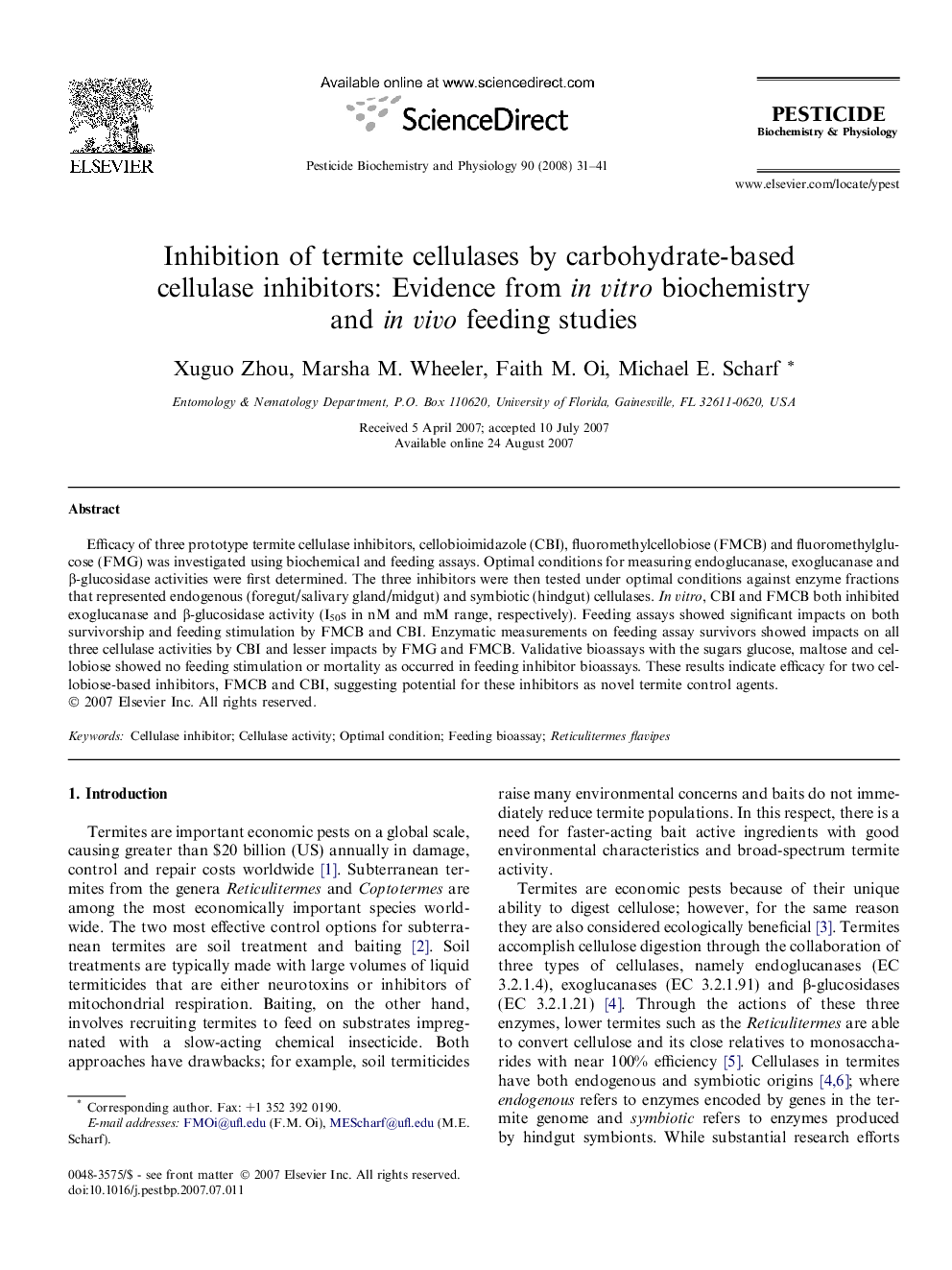| Article ID | Journal | Published Year | Pages | File Type |
|---|---|---|---|---|
| 2010299 | Pesticide Biochemistry and Physiology | 2008 | 11 Pages |
Efficacy of three prototype termite cellulase inhibitors, cellobioimidazole (CBI), fluoromethylcellobiose (FMCB) and fluoromethylglucose (FMG) was investigated using biochemical and feeding assays. Optimal conditions for measuring endoglucanase, exoglucanase and β-glucosidase activities were first determined. The three inhibitors were then tested under optimal conditions against enzyme fractions that represented endogenous (foregut/salivary gland/midgut) and symbiotic (hindgut) cellulases. In vitro, CBI and FMCB both inhibited exoglucanase and β-glucosidase activity (I50s in nM and mM range, respectively). Feeding assays showed significant impacts on both survivorship and feeding stimulation by FMCB and CBI. Enzymatic measurements on feeding assay survivors showed impacts on all three cellulase activities by CBI and lesser impacts by FMG and FMCB. Validative bioassays with the sugars glucose, maltose and cellobiose showed no feeding stimulation or mortality as occurred in feeding inhibitor bioassays. These results indicate efficacy for two cellobiose-based inhibitors, FMCB and CBI, suggesting potential for these inhibitors as novel termite control agents.
